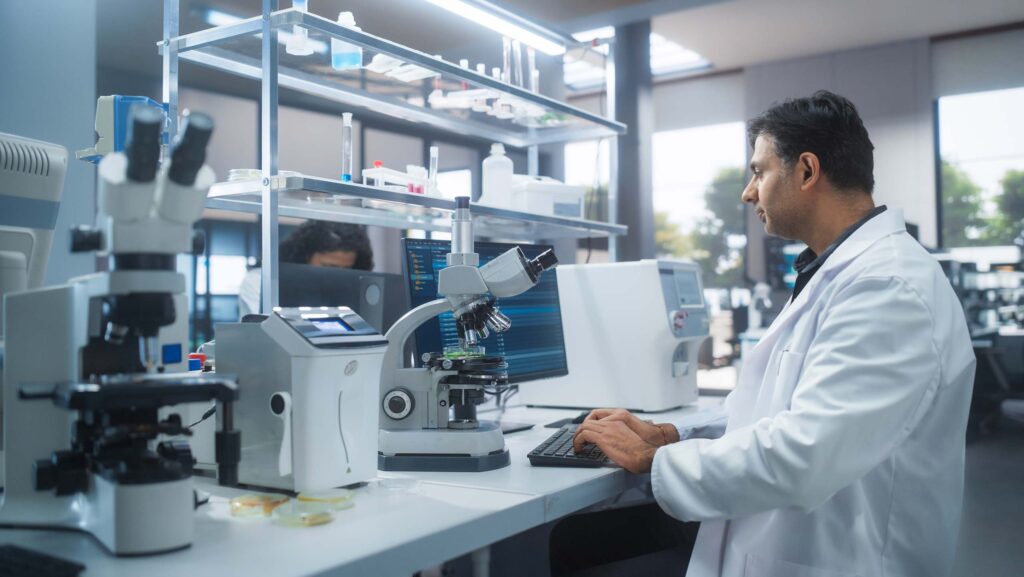Science and tech in agriculture held back by red tape say experts
 © Adobe Stock
© Adobe Stock Attempts to raise food output while reducing environmental impact are being thwarted by inappropriate regulation, a stakeholder meeting organised by the All Party Parliamentary Group on Science and Technology in Agriculture has heard.
Part of the group’s 30:50:50 initiative – which aims to encourage a 30% increase in food production with a 50% lower environmental footprint by 2050 – the roundtable meeting was held to tease out ways in which the policy landscape needs to change.
See also: Sustainability index needed to aid ‘more from less’ agenda
In terms of raising output, several participants complained that the current regulatory environment was “not fit for purpose”.
Ian Mace of Associated British Foods said the government needed to set clear targets for food production, taking full account of projected population growth.
This should be prioritised when setting government budgets, he added, with a better balance between food production and environmental requirements.
Mr Mace also expressed concern that the recent Sanitary and Phytosanitary agreement with the EU could tie the UK into a regulatory framework not best suited for the domestic industry.
Technology
Stephen Howarth of the Agricultural Engineers Association said it was some help that the government had introduced grant funding to aid investment in equipment to boost productivity, but there was a need for greater clarity and consistency.
“When the grants are available, there is always a mad rush to secure them, but this ‘stop-start’ approach is damaging in terms of encouraging investment,” he said.
It would also be a problem if some of the regulatory specifications required to sell new machines in the UK were at odds with international standards, as it would act as a disincentive for manufacturers to adapt their technologies for what, in global terms, is a niche market
Genetics
Craig Lewis from animal genetics company Genus pointed to the role genetics can play in boosting food output.
“There have already been huge advances, especially with gene editing which has massive potential,” he said.
“For example, we have a PRRS [Porcine Reproductive and Respiratory Syndrome] resistant pig available now, but the secondary legislation to allow us to take it forward commercially is still not in place.
“Gene editing could be game changing, but the regulatory environment holds us back.”
The inability to commercialise gene-edited livestock in the UK was also discouraging international players from investing in UK research institutes, such as Pirbright and the Roslin Institute.
Planning system
Meanwhile, Kerry Maxwell from the British Poultry Council pointed to issues with the planning system as one of the key barriers to raising output in her sector.
With broiler growers having reduced stocking rates on farms in response to supermarket pressure, the problem was building enough new sheds to deliver the 20 million chickens a week the UK market requires, she said.
Environmental delivery
In terms of environmental delivery, several speakers identified significant shortcomings with the current regulatory set-up – especially the agri-environment schemes being rolled out under the government’s Farming and Countryside Programme.
David Barton, NFU Livestock Board chairman, explained that ongoing uncertainty left him unconvinced that government support would be there in the future.
“We have been involved in environmental schemes for years on our farm, but that ends on 31 December and currently we have nowhere to go,” he said.
“I don’t know if the government or the nation want me to carry on, but if we don’t that will be bad news for society.”
Science and technology were undoubtedly important to raising food productivity, he added, but the current system of tax allowances did not encourage him to invest. That needed to change.
William Burgess, chairman of BASIS, questioned the balance in government policy, suggesting that too much emphasis on environmental delivery in the UK would simply result in more food imports from countries not matching domestic standards.
“Current policies do not put enough emphasis on food production. We must not simply export our environmental problems to other countries,” he said.
